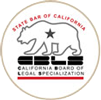What Is An Executor?
The Executor is the person responsible for performing a number of very important tasks. The Executor will be responsible for collecting and protecting your Probate Assets, paying your debts and taxes, and distributing your Probate Assets to your beneficiaries. Depending on the size and complexity of your assets, the Executor may have to spend a great deal of time fulfilling his/her responsibilities. In your Will you may nominate an Executor. If you die without a Will the State will appoint someone called an administrator to put your affairs in order.
Does a Will Affect the Disposition of All My Property?
A Will may not affect the disposition of all of your property. Generally speaking your Will affects only those assets which are in your name alone at the time of your death, and do not pass by beneficiary designation or otherwise. These assets are called Probate Assets. For example, if you have life insurance, retirement plans or bank accounts and have named a beneficiary to receive such assets in the event of your death such beneficiary will receive the asset regardless of the provisions in your Will. Moreover, if you hold an asset as a joint tenant, upon your death, the surviving joint tenant will get that asset. And assets held in a Revocable Living Trusts at your death are distributed pursuant to the provisions of the trust document.
Does Having a Will Avoid Probate?
Having a Will does not mean your beneficiaries will avoid Probate. However, as a general rule if you die with fewer than $150,000 in Probate Assets a probate proceeding will be unnecessary.
Do I Still Need a Will if I Have a Living Trust?
Yes. Your Will governs assets which, at the time of your death, are held in your name alone and not in your living trust or some other form of ownership. If you have a living trust you will need something called a “pour-over Will” which simply directs that all assets held in your name alone at the time of your death be transferred to your living trust. Moreover, even if you have a living trust you may also need a Will to nominate guardians for your minor children.
Can I Change or Revoke My Will?
Yes. As long as you are competent, you can change or revoke your Will.
What Happens If I Die Without a Will?
If you die without a Will the State will distribute your probate property according to the laws of intestate succession. You will have no choice as to who gets such property. In many cases the State will not give your property to the same individuals to whom you would have given your property. And, if you die without any relatives the State itself will keep your property rather than giving it to your favorite charity or to the people you care about the most.
What Will Happen to My Minor Children If I Die?
If you die leaving minor children the State will appoint their legal guardian. If you have nominated that person in your Will the court will generally defer to that choice and appoint your designee as legal guardian. If you die without a Will the State will appoint a Guardian for your children without having had your input. Because this person may not be the person you would have wished to care for your children it is crucial that you have a Will or other document nominating your chosen Guardian.
Can a Will Provide for Continuing Asset Management for My Children or Other Beneficiaries?
Yes. Your Will can provide that your executor put your assets into a trust for the benefit of your children or other beneficiaries. These trusts are called “testamentary trusts” because they do not come into existence until your death. The testamentary trust can provide that your children’s inheritance is held in trust for them until reaching a certain age or until your children meet other various conditions.



